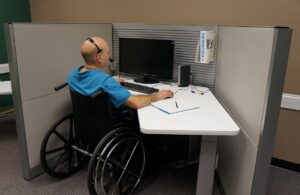In recent years, the phenomenon of adult children moving back in with their parents has become increasingly common. This trend, often referred to as "boomeranging," is largely driven by the escalating cost of housing. Young adults, particularly those in their twenties and early thirties, are finding it increasingly difficult to afford their own homes.
Rising housing costs
The primary reason for the surge in young adults moving back home is the skyrocketing cost of housing. In many urban areas, property prices have outpaced wage growth, making it nearly impossible for young people to save for a deposit, let alone afford monthly mortgage payments. Even renting has become prohibitively expensive in many cities, with rental prices consuming a significant portion of an individual's income. This financial strain forces many young adults to seek refuge in the more affordable option of living with their parents.
Student debt and job market challenges
Compounding the issue of high housing costs is the burden of student debt. Many young adults graduate with substantial loans, which they must start repaying shortly after leaving university. This financial obligation, combined with a sometimes unstable job market, makes it even harder for them to gather the necessary funds to move out. Furthermore, entry-level salaries often do not match the high living costs in many areas, leaving young professionals with little choice but to return to their family homes.
Changing social norms
While economic factors are significant, changing social norms also play a role. There is less stigma today associated with moving back in with parents compared to previous generations. Society is becoming more accepting of this living arrangement as a practical solution to financial challenges. Social media and other platforms have fostered communities where young adults can share their experiences and support each other, reducing the sense of isolation or failure that might have been felt in the past.
The impact on families
The return of adult children to the family home has both positive and negative effects on family dynamics. On the positive side, it can strengthen family bonds and provide mutual support. Parents and children can share household responsibilities and expenses, which can make living more manageable for everyone involved. However, it can also lead to tension and conflict, especially if the arrangement was not expected or planned for. It requires a renegotiation of roles and boundaries to ensure that all family members are comfortable and respectful of each other's space and lifestyle.
Long-term societal implications
The trend of young adults moving back in with their parents has broader societal implications. It may delay important life milestones such as marriage, starting a family, and achieving financial independence. Additionally, it can impact the housing market, as fewer young adults are able to buy homes, which in turn affects property values and the overall economy. Policymakers and housing authorities need to address these challenges by implementing strategies to make housing more affordable and accessible for young people.
Looking forward
Addressing the root causes of this trend requires a multifaceted approach. Governments and policymakers need to focus on creating affordable housing options and ensuring that young people have access to well-paying jobs that match the cost of living. Additionally, there should be initiatives to alleviate the burden of student debt and support financial literacy among young adults. While moving back in with parents can be a practical short-term solution, long-term strategies are essential to help young people achieve independence and financial stability.
The rise of children moving back in with their parents due to the high cost of housing is a complex issue with far-reaching implications. By understanding the contributing factors and working towards sustainable solutions, we can strive to create a more equitable and supportive environment for the next generation.






















